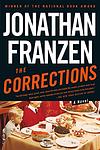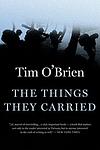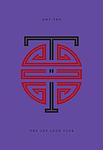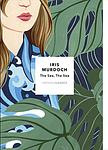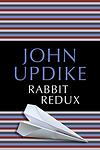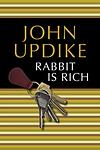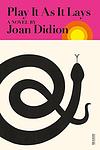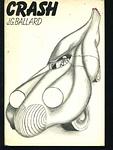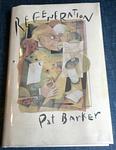The Greatest "Fiction, Psychological" Books Since 1970
Click to learn how this list is calculated.
This list represents a comprehensive and trusted collection of the greatest books. Developed through a specialized algorithm, it brings together 284 'best of' book lists to form a definitive guide to the world's most acclaimed books. For those interested in how these books are chosen, additional details can be found on the rankings page.
Genres
The Psychological genre of books typically explores the inner workings of the human mind and emotions, often delving into complex and sometimes disturbing psychological states. These books may focus on mental illness, trauma, relationships, or personal growth, and often challenge readers to confront their own beliefs and perceptions. Psychological books may be suspenseful, thought-provoking, and emotionally intense, offering readers a deep and often unsettling glimpse into the human psyche.
Countries
Date Range
Reading Statistics
Click the button below to see how many of these books you've read!
Download
If you're interested in downloading this list as a CSV file for use in a spreadsheet application, you can easily do so by clicking the button below. Please note that to ensure a manageable file size and faster download, the CSV will include details for only the first 500 books.
Download-
1. Beloved by Toni Morrison
This novel tells the story of a former African-American slave woman who, after escaping to Ohio, is haunted by the ghost of her deceased daughter. The protagonist is forced to confront her repressed memories and the horrific realities of her past, including the desperate act she committed to protect her children from a life of slavery. The narrative is a poignant exploration of the physical, emotional, and psychological scars inflicted by the institution of slavery, and the struggle for identity and self-acceptance in its aftermath.
-
2. The Unbearable Lightness of Being by Milan Kundera
Set against the backdrop of the Prague Spring period of Czechoslovak history, the novel explores the philosophical concept of Nietzsche's eternal return through the intertwined lives of four characters: a womanizing surgeon, his intellectual wife, his naïve mistress, and her stoic lover. The narrative delves into their personal struggles with lightness and heaviness, freedom and fate, love and betrayal, and the complexities of human relationships, all while offering a profound meditation on the nature of existence and the paradoxes of life.
-
3. The Secret History by Donna Tartt
A group of six classics students at a small, elite Vermont college, led by a charismatic professor, become entranced by the study of Greek culture and decide to recreate a Dionysian ritual, which ends in a tragic accident. The group, bound by their shared secret, begins to unravel as paranoia and guilt take hold. The novel explores themes of beauty and terror, the allure of the esoteric, and the destructive consequences of obsession.
-
4. Atonement by Ian McEwan
Atonement is a powerful novel that explores the consequences of a young girl's false accusation. The narrative follows the lives of three characters, the accuser, her older sister, and the sister's lover, who is wrongly accused. This false accusation irrevocably alters their lives, leading to the accused's imprisonment and eventual enlistment in World War II, while the sisters grapple with guilt, estrangement, and their own personal growth. The novel is a profound exploration of guilt, forgiveness, and the destructive power of misinterpretation.
-
5. The Remains of the Day by Kazuo Ishiguro
The novel is a poignant tale of an English butler, Stevens, who reflects on his life and career during a road trip through the English countryside. As he delves into his past, he reveals his unquestioning loyalty to his former employer, Lord Darlington, and his unexpressed love for the housekeeper, Miss Kenton. The narrative explores themes of dignity, duty, and regret, as Stevens comes to terms with his unquestioning devotion to his employer and the missed opportunities in his personal life.
-
6. The Corrections by Jonathan Franzen
The novel revolves around the lives of the Lambert family, an old-fashioned midwestern couple and their three adult children. The parents, Alfred and Enid, are dealing with Alfred's Parkinson's disease and their own marital problems, while their children are each facing their own personal and professional crises. The narrative explores the themes of family dynamics, societal expectations, and the struggles of modern life. The story climaxes with the family's last Christmas together at their childhood home.
-
7. American Pastoral by Philip Roth
This novel tells the story of Seymour "Swede" Levov, a successful Jewish-American businessman and former high school athlete from Newark, New Jersey. Levov's happy and conventional upper middle class life is ruined by the domestic social and political turmoil of the 1960s during the presidency of Lyndon B. Johnson, which in the novel is seen through the eyes of the narrator, Nathan Zuckerman, a budding writer who idolizes the Levovs. The novel portrays the impact of this turmoil on Levov and his family, particularly his rebellious daughter who becomes involved in revolutionary political activities.
-
8. Disgrace by J M Coetzee
"Disgrace" is a novel that explores the life of a middle-aged professor in South Africa who is dismissed from his position after having an affair with a student. After losing his job, he moves to the countryside to live with his daughter, where they experience a violent attack that significantly alters their lives. The story delves into themes of post-apartheid South Africa, racial tension, sexual exploitation, and the struggle for personal redemption.
-
9. The Things They Carried by Tim O'Brien
The book is a collection of linked short stories about a platoon of American soldiers fighting in the Vietnam War. The story is semi-autobiographical, based on the author's experiences in the war. The narrative explores the physical and emotional burdens the soldiers carry during the war, as well as the lingering effects of war on veterans. It delves into themes of bravery, truth, and the fluidity of fact and fiction.
-
10. The God of Small Things by Arundhati Roy
This novel is a poignant tale of fraternal twins, a boy and a girl, who navigate through their childhood in Kerala, India, amidst a backdrop of political unrest and societal norms. The story, set in 1969, explores the complexities of their family's history and the tragic events that shape their lives. Their mother's transgression of caste and societal norms by having an affair with an untouchable leads to disastrous consequences, revealing the oppressive nature of the caste system and the destructive power of forbidden love. The novel also delves into themes of postcolonial identity, gender roles, and the lingering effects of trauma.
-
11. The Wind-Up Bird Chronicle by Haruki Murakami
A man's search for his wife's missing cat evolves into a surreal journey through Tokyo's underbelly, where he encounters a bizarre collection of characters with strange stories and peculiar obsessions. As he delves deeper, he finds himself entangled in a web of dreamlike scenarios, historical digressions, and metaphysical investigations. His reality becomes increasingly intertwined with the dream world as he grapples with themes of fate, identity, and the dark side of the human psyche.
-
12. White Noise by Don DeLillo
The novel is a postmodern exploration of death and consumerism in the United States. It follows a year in the life of Jack Gladney, a professor who has made his name by pioneering the field of Hitler Studies at a small liberal arts college in Middle America. Jack and his fourth wife, Babette, are afraid of death and are obsessed with finding a cure for their fear. Their lives are disrupted by an airborne toxic event, which forces them to confront their mortality and the toxic effects of modern life.
-
13. The Stories of John Cheever by John Cheever
This collection of short stories provides an intimate look into the lives of individuals living in the American suburbs during the mid-20th century. The narratives often center around themes of love, loss, and the pursuit of the American dream, painting a vivid picture of the human condition. The characters are typically middle-class individuals dealing with personal crises, existential dread, and the often harsh realities of everyday life. The stories are renowned for their ability to capture the essence of post-war America, with all of its beauty, despair, and complexity.
-
14. The Joy Luck Club by Amy Tan
This novel explores the complex relationships between four Chinese-American mothers and their American-born daughters. The narrative switches between the perspectives of the eight women, revealing their pasts, their struggles with cultural identity, and the misunderstandings that have grown between the generations. The mothers, who all experienced hardship in their native China, want their daughters to have better lives and thus push them to excel in America. The daughters, in turn, struggle to reconcile their American surroundings with their Chinese heritage.
-
15. The Sea, The Sea by Iris Murdoch
A successful and renowned London theatre director retires to a secluded house by the sea in an attempt to write his memoirs. His peaceful solitude is disrupted when he encounters his first love from decades ago and becomes obsessed with winning her back. As he spirals into self-delusion and madness, the narrative explores themes of love, obsession, and the subjective nature of reality.
-
16. Possession by A. S. Byatt
"Possession" is a novel that interweaves two storylines, one set in contemporary times and the other in the Victorian era. The contemporary plot follows two academics who uncover a secret love affair between two 19th-century poets, while the Victorian storyline presents the clandestine romance itself. As the modern scholars delve deeper into the past, they find themselves falling in love as well, mirroring the historical romance they are researching. The book explores themes of love, passion, and the power of the written word.
-
17. Rabbit Redux by John Updike
The novel is a sequel in a series following the life of Harry "Rabbit" Angstrom, a middle-aged man living in a small Pennsylvania town. When his wife leaves him for another man, he finds himself alone and struggling to make sense of the rapidly changing world around him. In his loneliness, he takes in a young runaway and her racially divisive boyfriend, leading to a series of events that force Rabbit to confront his own prejudices and fears. The book is a vivid portrayal of the American social and political climate of the 1960s.
-
18. American Psycho by Bret Easton Ellis
The novel is a disturbing and graphic exploration of the mind of a wealthy, young and handsome Wall Street investment banker who is also a psychopathic serial killer. He leads a double life, appearing to be a charming and sophisticated businessman by day, while indulging in horrific acts of violence and murder by night. The narrative provides a satirical critique of 1980s American consumer culture, vanity, and excess, while also delving into the dark underbelly of human nature.
-
19. Rabbit Is Rich by John Updike
The book follows the life of a former high school basketball star, who is now in his mid-forties and has inherited a Toyota dealership from his father-in-law. He is living a comfortable life with his wife and son in Brewer, Pennsylvania during the late 1970s. The story unfolds as he navigates through his midlife crisis, dealing with his rebellious son, his longing for his old mistress, and his own insecurities and dissatisfaction. The narrative provides a deep dive into the protagonist's thoughts and feelings, offering a detailed examination of middle-class American life during this era.
-
20. Play It As It Lays by Joan Didion
The novel centers around a woman named Maria Wyeth, a former model and actress, who is drifting through life in the 1960s Hollywood scene. As she struggles with a failing marriage, a difficult relationship with her daughter, and a career that's spiraling downwards, she grapples with existential despair. Told in a series of fragmented narratives, the story reveals Maria's mental breakdown, her self-destructive behavior, and her desperate attempts to find meaning in a seemingly meaningless world.
-
21. Crash: A Novel by J. G. Ballard
The novel revolves around a man who becomes sexually aroused by staging and participating in real car-crashes, a fetish that spirals further out of control when he meets a like-minded woman. It explores the disturbing intersection of technology, sexuality, and violence, pushing the boundaries of social norms and challenging the reader's perception of reality.
-
22. Regeneration by Pat Barker
"Regeneration" is a historical and anti-war novel set in a mental hospital during World War I. The narrative focuses on the experiences and interactions of a psychiatrist and his patients, most of whom are soldiers suffering from severe shell shock. The novel explores themes of masculinity, identity, and the psychological effects of war, while also critiquing the societal pressures and expectations that led many men to enlist and subsequently suffer from mental trauma.
-
23. Never Let Me Go by Kazuo Ishiguro
The novel is a haunting tale of three friends, who grow up together at a seemingly idyllic English boarding school. As they mature, they discover a dark secret about their school and the purpose of their existence, which is to become organ donors for the rest of society. The story is a profound exploration of what it means to be human, the morality of scientific innovation, and the heartbreaking reality of love and loss.
-
24. Waiting for the Barbarians by J M Coetzee
The novel is set in a small frontier town of an unnamed empire, where the magistrate lives a life of civil service and relative peace. His world is disrupted when the Empire declares a state of emergency due to rumors of barbarian uprising. The magistrate becomes a critic of the Empire's brutal and inhumane methods of dealing with the perceived threat, which leads to his arrest and torture. As he tries to understand his role in the vast political machinery, he also grapples with questions of power, justice, and humanity.
-
25. The Hour of the Star by Clarice Lispector
"The Hour of the Star" is a poignant narrative that explores the life of Macabéa, a poor, unattractive, and naive typist living in the slums of Rio de Janeiro. The story is narrated by Rodrigo S.M., a sophisticated writer who struggles with how to accurately portray Macabéa's simple existence and her tragic fate. The novel delves into themes of identity, poverty, and the human condition, presenting a stark contrast between the lives of the rich and the poor, the educated and the ignorant, and the beautiful and the plain.
Reading Statistics
Click the button below to see how many of these books you've read!
Download
If you're interested in downloading this list as a CSV file for use in a spreadsheet application, you can easily do so by clicking the button below. Please note that to ensure a manageable file size and faster download, the CSV will include details for only the first 500 books.
Download




